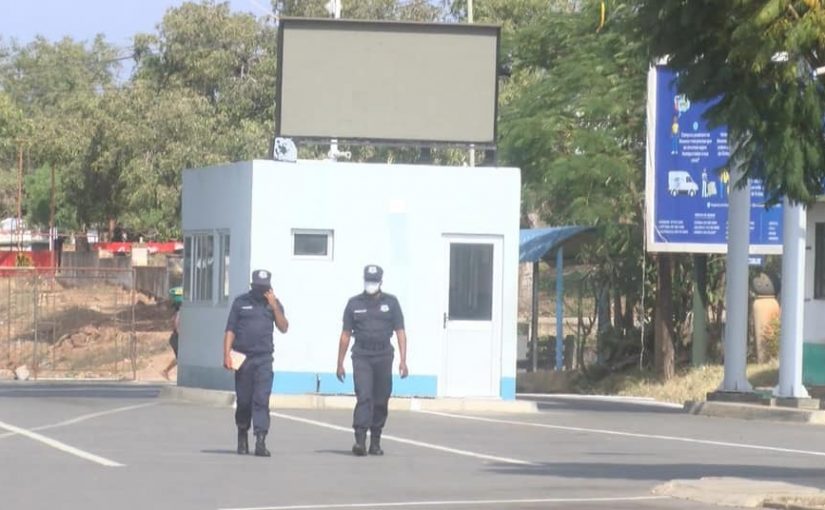Africa establishes a space agency to close its climate data gap
Mozambique: Analysts call for greater investment in border control

Ressano Garcia border in Southern Mozambique. [File photo: Noticias]
Analysts say that Mozambique should invest in border security technology to stem the flow of foreign fighters and international crime, criticising a reduced focus on defending the country’s territorial integrity.
Mozambique’s president, Filipe Nyusi, advocated greater cooperation in cross-border surveillance to combat terrorism in the Southern African Development Community (SADC) during the Extraordinary Summit of the organisation’s Double Troika, held on 8 April.
Commenting on this concern, Calton Cadeado, an expert in Peace and Conflict at the Joaquim Chissano University, a state institution, felt that the country should invest in technological means for cross-border security to eliminate or reducing the porosity of entry points into the country.
“There has been a lot of investment in human capital and infrastructures in the control of national borders, but little or nothing is seen in terms of modern technological resources that can ensure greater efficiency,” he told Lusa.
Currently, he continued, the policing of borders is also done with sophisticated means such as helicopters, drones, satellites, among others.
On the other hand, the border guard agents should stop being “a poor relation” of the Defence and Security Forces (FDS) system and be given greater incentives.
“Corruption within the border guard police officers are a symptom of the state’s weakness in defending its sovereignty, not the cause,” argued that expert.
On the thesis that Tanzania should do more to stop the entry of foreign fighters in Northern Mozambique, Calton Cadeado stressed that, first, the Mozambican state should ensure their protection and then demand accountability.
“In international relations, we have a maxim that says: ‘A good fence makes good neighbours’,” he concluded.
Adriano Nuvunga, a political scientist and director of the Centre for Public Integrity (CIP), a Mozambican civil society organisation, defended “structural changes in the border defence system”, criticising “disinvestment and high corruption” for the permeability of Mozambique’s borders.
“The porousness of Mozambique’s borders has been, in part, deliberate, to allow all kinds of trafficking fuelled by elites,” Nuvunga charged.
Trafficking in timber, poaching, protected wildlife species, mineral resources, and people has enriched leaders and encouraged neglect of border security.
“What is happening on our borders is yet another manifestation of the degradation of the functions of the state,” he stressed.
He said that “Mozambique should do its part, restructuring the entire border security system and putting sophisticated means” at its service.
Fernando Lima, journalist and chairman of the first private media group in Mozambique, Mediacoop, also advocated investment in modern technological resources and enhanced border guards’ status.
“The paranoia of the defence of the sovereignty of the first years of independence has gone, but now we need to move to a more modern phase in defence of the borders, which is not only the reserve of the men and women who are there, it is also done through modern means such as drones, satellites and more effective means of movement,” he said.
Lima also pointed out the establishment of a good system of information gathering and exchange between countries to monitor migratory flows that could endanger the security of the states.
The emphasis on border surveillance in Mozambique comes at a time when the violence unleashed over the last three years in Cabo Delgado province took a new escalation, when on 24 March, armed groups attacked for the first time the town of Palma, which is about six kilometres from the multi-million dollar natural gas projects.
The attacks caused dozens of deaths and forced thousands of Palma residents to flee, worsening a humanitarian crisis that has affected some 700,000 people in the province since the conflict began in 2017, causing more than 2,500 deaths.












Leave a Reply
Be the First to Comment!
You must be logged in to post a comment.
You must be logged in to post a comment.